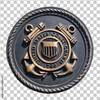China Looks to Join Big US-led Pacific Naval Drills
A giant U.S.-led naval exercise began off Hawaii on Thursday with China joining its Asia-Pacific rivals for the first time, but analysts doubted the drills will ease tensions over Chinese maritime claims and some said Beijing could use them to strengthen its navy.
Washington and its allies hope China's participation in the five-week Rim of the Pacific (RIMPAC) exercises, involving 55 vessels, more than 200 aircraft and some 25,000 personnel from 22 countries, will build trust and help avert misunderstandings on the high seas that could escalate into crisis.
But analysts say the maneuvers may only help Beijing strengthen its growing naval capability by observing the forces of the United States and its allies.
Twenty-three nations had been expected to participate in RIMPAC this year. But Thailand will not take part, the Pentagon said on Thursday. Thailand is a long-time U.S. treaty ally, but Washington has suspended some cooperation projects with the country since its May 22 military coup.
China has sent four ships for its debut at RIMPAC, which runs until Aug. 1.
The Chinese ships are the missile destroyer Haikou, the missile frigate Yueyang, the supply ship Qiandaohu and the hospital ship Peace Ark. Chinese forces include two helicopters, a commando unit and a diving unit, a total 1,100 personnel.
The Haikou has a sophisticated battle-management system similar to the Aegis system used on many U.S. warships, which uses integrated radar and computer systems to track and destroy targets.
The Chinese ships rendezvoused off the U.S. Pacific island of Guam with warships from the United States, Singapore and Brunei before sailing to Hawaii. Nine ships from the four countries conducted drills involving maneuvering, communications and live weapons fire while en route to Pearl Harbor, where they arrived on Tuesday.
U.S. Navy chief Admiral Jonathan Greenert said last year RIMPAC allowed participating forces to practice high-end ballistic missile defense, surface and anti-submarine warfare in simulations and live-fire missile and torpedo exercises.
This year's exercises will include "cross-decking," where liaison officers from one country will be aboard the ship of another during the maneuvers, a U.S. defense official said.
"It benefits both countries and helps communications. It's a win-win situation," the official said.
U.S. officials say exercises like RIMPAC help navies involved learn how to work together in a wide range of operations, including disaster relief and countering pirates.
China Gains Most
They say deeper U.S.-China military ties help encourage transparency and clear lines of communication. But critics question whether including China in events like RIMPAC benefit China far more than they do the United States and its allies.
The exercises come at a time when tensions are high between Beijing and U.S. allies such as Japan and the Philippines over China's pressing of territorial claims in the South and East China Seas and Vietnamese vessels have clashed with China over waters claimed by both nations.
Austin Strange, a researcher at the U.S. Naval war College's China Maritime Studies Institute, said participation in the exercises was an opportunity for China's navy to demonstrate its increased capabilities and to get a closer look at other navies.
"RIMPAC and China's participation ... is unlikely to directly impact peace in the Asia-Pacific region," he said. Asia-Pacific stability rests more on the ways in which states communicate and pursue their national interests vis-à-vis other states in the region."
The Pentagon's emphasis on trust building and trying to promote common views on regional security were "misplaced," said Oriana Mastro, an assistant professor of security studies at Washington's Georgetown University.
"We are not forging personal relationships of the duration and degree necessary to keep two countries from going to war," she said. "And in my opinion, dialogue will not successfully convince the Chinese to rethink what they consider to be national interests."
However she said inviting China did help to counter Beijing's line that the United States is trying to "contain" China and fitted with Washington's assertion that it welcomes a greater Chinese global role, as long as it is constructive.
Roger Cliff, an analyst at Washington's Atlantic Council think tank, said Washington may also hope China will reciprocate by inviting the U.S. Navy to participate in a PLA Navy exercise.
But he said China was likely to gain more from RIMPAC than it gave away.
"They will ... learn from observing us and the other participants, and they will not only learn about our capabilities, they will also learn how to perform things more efficiently or effectively, whereas they probably don't have much to teach us in that regard," he said.
"So they probably will learn more than we do."
(By David Brunnstrom and David Alexander; Editing by Cynthia Osterman)













